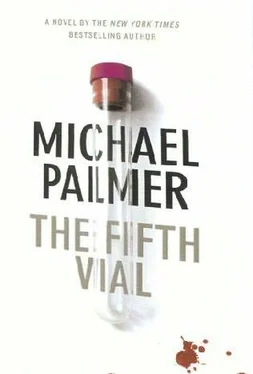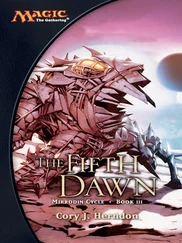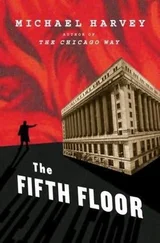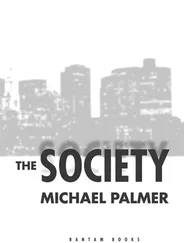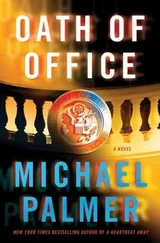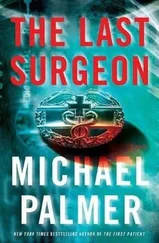Michael Palmer - The fifth vial
Здесь есть возможность читать онлайн «Michael Palmer - The fifth vial» весь текст электронной книги совершенно бесплатно (целиком полную версию без сокращений). В некоторых случаях можно слушать аудио, скачать через торрент в формате fb2 и присутствует краткое содержание. Жанр: Триллер, на английском языке. Описание произведения, (предисловие) а так же отзывы посетителей доступны на портале библиотеки ЛибКат.
- Название:The fifth vial
- Автор:
- Жанр:
- Год:неизвестен
- ISBN:нет данных
- Рейтинг книги:4 / 5. Голосов: 1
-
Избранное:Добавить в избранное
- Отзывы:
-
Ваша оценка:
- 80
- 1
- 2
- 3
- 4
- 5
The fifth vial: краткое содержание, описание и аннотация
Предлагаем к чтению аннотацию, описание, краткое содержание или предисловие (зависит от того, что написал сам автор книги «The fifth vial»). Если вы не нашли необходимую информацию о книге — напишите в комментариях, мы постараемся отыскать её.
The fifth vial — читать онлайн бесплатно полную книгу (весь текст) целиком
Ниже представлен текст книги, разбитый по страницам. Система сохранения места последней прочитанной страницы, позволяет с удобством читать онлайн бесплатно книгу «The fifth vial», без необходимости каждый раз заново искать на чём Вы остановились. Поставьте закладку, и сможете в любой момент перейти на страницу, на которой закончили чтение.
Интервал:
Закладка:
Platini Katjaoha, the mayor of the village, ran a general store, and lived in the most opulent house — stucco and cinderblock, two stories, with a carport, several rooms, and a cistern. There was also a satellite dish protruding off one of the outside walls. He answered Anson's gentle knock barefooted, wearing red Bermuda shorts and a button-up Hawaiian shirt that stretched tightly over his royal girth. His smile showed perfectly white teeth that seemed almost phosphorescent against the ebony of his skin.
"Mr. Mayor," Anson whispered in French, "thank you so much for doing this for me."
"You are always welcome in my home, Doctor," Katjaoha boomed, punctuating his greeting with a handshake and bear hug. "The door is closed upstairs, so you will awaken no one. My wife sleeps like a cow, anyhow, and the children are exhausted from getting underfoot all day. Can I get you some wine, tea, anything?"
"Just a phone."
"I heard that you had a successful operation. We are pleased."
"Thank you, my friend. I have a new lung."
"From someone in India, I heard."
"Actually, that's what I am here to find out. Did Francis tell you I would be making a long-distance call?"
"For all that you have done for the people in our village, you could call the moon if you wish."
"Thank you. Please write your number down. I will need my friend to call me back here."
"No problem."
"And I may have to wait for that call."
"Also no problem."
"You are a wonderful man, Platini Katjaoha."
"Then you are the idol of wonderful men. I will be upstairs. Call my name out if you need me."
Anson thanked him again, then settled into a frayed easy chair by the telephone and pulled a folded paper from his pocket. There was a five-hour difference between Cameroon and New Delhi, so he had some uncertainty as to whether Bipin Gupta would be at home or at his office. Knowing the head of the editorial page of the highly regarded Indian Express newspaper as well as he did, Anson dialed the work number first. Not surprisingly, Gupta answered on the initial ring.
"Greetings from Cameroon, old friend," Anson said in near-fluent Hindi.
"Joseph, Joseph, what a pleasant surprise. You must call more often, though. Your South African accent is getting more pronounced."
The two of them had roomed together for two years during college in Capetown. Even though Gupta was quite fluent in English, Anson insisted from day one that they speak only Hindi to each other. He had always had a knack for learning languages and quickly added Gupta's native tongue to his English, Afrikaans, Dutch, French, Spanish, and German.
He was surprised during the trip to Amritsar to realize that he had never shared the fact of his fluency in Hindi with Elizabeth. At first he was a bit embarrassed sitting by while Sanjay Khanduri translated Ianguage that he understood perfectly, but he was also amused, and he fully intended not to allow his humorous little deception get too far. However, that was before Narendra Narjot, or whoever she was, asked, "How do you like my performance so far?" and Khanduri shockingly replied, "Just keep your answers simple and straightforward, and I will do the rest."
"Bipin," Anson said after some initial courtesies, "I need you to check on two things for me. If it is possible, I will wait here for your reply. The first is a man by the name of T. J. Narjot, Sultan Road, Amritsar. About forty. He reportedly died at Central Hospital sometime during the week of July eighteenth."
"And the second?"
"Sometime around that date there was allegedly an in-hospital epidemic at Central Hospital and others in Amritsar with a germ named Serratia marcescens. I need to know if that epidemic actually took place."
The journalist had him spell the bacterium, then said, "You know that it is more difficult to determine that a person doesn't exist or an event didn't happen, than if they did."
"What I know is that my friend Bipin Gupta can do anything."
"Give me a number to reach you," Gupta said, "and an hour."
CHAPTER 28
If they escape disaster, they will be the better for it.
— PLATO, The Republic, Book VRodrigo Vargas's black Mercedes was a powerful four-door sedan that smelled of cigars. Battered and slowed by her breathing and the deep bruise in her hip, Natalie had driven nearly a quarter of a mile before finding a narrow dirt spur cutting off into the dense forest. After she assured herself that the car was invisible from the road, she made four trips back to the Jeep to haul supplies up the hill. By the time she had transferred her compact tent, backpack, water, and food supplies into the Mercedes, it was late afternoon. During that time, not one car passed in either direction.
With no idea how far she was from Dom Angelo, she decided to drive, albeit slowly. In just thirty minutes, a road dropped off downhill into the forest to her right. A sign nailed to a tree at the fork had an arrow pointing to the left, along with the crudely painted directions, DA 2 km. Less than a kilometer along that road, she found a pair of rough tracks cutting off into the dense growth to her left. She drove the Mercedes in until the tracks had all but disappeared at the base of a hill. This time she did her best to cover the rear of the car with tree branches, and then wedged the key tightly beneath the right front tire.
During the drive, she had concocted a reasonably satisfying story of a naturalist from America hiking the rain forest and, at the moment, searching for a relative who, last she knew, worked as a nurse in Dom Angelo. Part of her story would also be a nasty downhill tumble when the edge of the drop-off gave way.
Her backpack, with the tent strapped on, was heavier than she would have liked, but anything less might have drawn suspicion. The pain in her hip was an annoyance, but not unbearable, and served as a constant re minder that her continued existence was a threat to some person or group. She just had to find a way to keep the pressure on.
The early evening forest was awesome — rich with oxygen and the blend of a thousand scents. As she walked, she tried to conceive of how she might be connected to this place, many thousands of miles from her home. The road followed a prolonged, gentle slope before curving to the right. Then, with little warning, the forest fell away, and the road dropped sharply. Ahead and below her, nestled in a broad valley, was what she assumed was the village of Dom Angelo.
For a time, Natalie sat at the base of a thick palm and studied the scene below, which from this distance looked like a diorama. There were a number of structures — mostly residences, it seemed — aligned along a grid of dirt streets. The buildings were crudely built with clay and corrugated metal. Smoke curled from several of them. To her left — north, she reckoned — was what appeared to be the entrance to a mine, hewn into the base of a mountain that towered over the valley. To her surprise, there were electric lights on poles, scattered throughout the village. Beneath them, children were playing. Natalie guessed two hundred inhabitants, maybe two fifty.
A hundred yards beyond the mine entrance, a narrow waterfall, twenty feet high, filled a small pool, which then emptied into a fast-moving stream, coursing alongside the village. Natalie wondered if somewhere downstream, this was the water that was sweeping over the dancing corpse of Rodrigo Vargas. There were children in the pool, and at least two women washing clothes in the stream. Farther down, two men were working primitive sluices, panning for gems or gold.
Idyllic, Natalie thought, quaint and absolutely peaceful, and yet, she had been maimed because of the place, and another woman murdered.
With a soft groan, she pulled herself upright and headed down into the basin. Chickens were the first to greet her, followed by two generic brown dogs. Next were three women — all Brazilian Indians. The tallest of them was still well less than five feet. The trio smiled at her openly and without the slightest hint of suspiciousness.
Читать дальшеИнтервал:
Закладка:
Похожие книги на «The fifth vial»
Представляем Вашему вниманию похожие книги на «The fifth vial» списком для выбора. Мы отобрали схожую по названию и смыслу литературу в надежде предоставить читателям больше вариантов отыскать новые, интересные, ещё непрочитанные произведения.
Обсуждение, отзывы о книге «The fifth vial» и просто собственные мнения читателей. Оставьте ваши комментарии, напишите, что Вы думаете о произведении, его смысле или главных героях. Укажите что конкретно понравилось, а что нет, и почему Вы так считаете.
